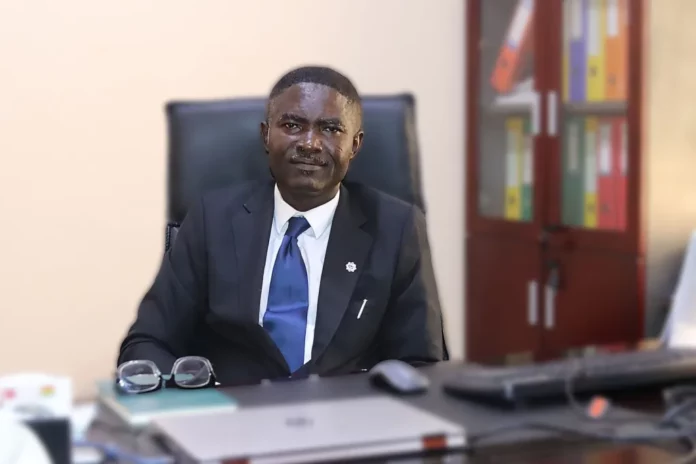The prolonged conflict in Bawku, rooted in longstanding ethnic tensions, has severely disrupted lives and communities, drawing concerns from both local and international stakeholders.
As violence in the area persists, efforts to restore peace remain a priority, with various organizations and governments intervening to facilitate dialogue and find a resolution to the crisis.
Speaking in an interview at the Economic Community for West African State (ECOWAS) meeting with National Peace Committee and Council of Member States, on Monday April 28, 2025, Dr. George Amoh, the Executive Secretary of the National Peace Council of Ghana, stated that the conflict has become a “lucrative business” for some individuals, overshadowing the compelling need to preserve lives.
“There are people with interest in the Bawku conflict. They may be politicians, businessmen, media men, they may be peace workers, they may be people with interest. I will want to appeal with people with interest whether you are a political actor or an indigene of the area or a businessman. Because people use conflict situations to do their businesses. I will want to call on all that, although you may get your money through the unfortunate incident happening, but are you happy seeing people being killed in the manner that is happening? That is not moral. So, I just want to appeal to everybody including politicians and businessmen, let’s give peace a chance,” he said.
He lamented the impact of the conflict on nurses, doctors and security personnel, among others who have fled Bawku due to threats to their safety.
“You will love Bawku if you go there but since the issue started, nurses are running away, doctors and teachers are running away. Even security men. I know someone who was posted there, he called me and said, sir, help me get out of this place because my life is threatened. That is how far the issues have gone,” he stressed.
Dr. Amoh urged residents and groups in Bawku to lay down their arms and allow peace to prevail to enable redevelopment in the area.
“The earlier the youth in the area lay down their arms, allow peace to thrive for development to take place the better it will be for all of us.”
He emphasized the need for peace and stability to facilitate progress.
“Without peace, development can never take place. We can take the opportunity. Conflict brings opportunities. Opportunities of reforming and changing the lifestyle, mindset and so we are able to use this recent relapse to also build a fortified front for both the Kusasis and the Mamprusis. It’s been done before. So, we can change course and give peace a chance and build Bawku,” he pleaded.
Anna Lixi, Head of Governance and Security at the European Union Delegation to Ghana, said that the EU is supporting the Regional Peace Council to promote mediation activities, particularly regarding chieftaincy issues and radicalization in the north.
“In Ghana we are currently supporting the Regional Peace Council, particularly in the north, the regional peace council and the local peace committees in order to promote mediation activities and peace building activities, particularly in relation to the chieftaincy in the north and in relation to the radicalization,” she said.
The ECOWAS Regional Meeting with National Peace Committee and Councils of State seeks to enhance peace mediation in areas affected by violence.
The meeting brought together representatives from West African countries, ECOWAS Commission, the European Union, the German Embassy in Ghana among other stakeholders to strengthen collaboration and partnership on peace mediation.
The three-day meeting seeks to enhance regional stability and security by fostering cooperation among member states.













